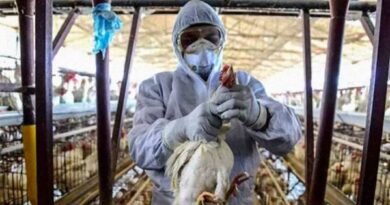Sigh of relief as Brazil leaves bank rate unchanged at 13,75%
[ad_1]
Sigh of relief as Brazil leaves bank rate unchanged at 13,75%
The bank said it expects the economy to slow over the rest of this year and removed language saying it won’t hesitate to raise rates again if necessary
Brazil’s Central Bank left its benchmark interest rate unchanged but softened its tone regarding further efforts to slow inflation. The bank’s monetary policy committee, Copom, left the key Selic rate at 13.75%, where it has stood since August after a series of consistent rate hikes aimed at slowing inflation.
The bank said it expects the economy to slow over the rest of this year and removed language used in recent statements saying it won’t hesitate to raise rates again if necessary, while adding it expects the country’s 12-month inflation rate to rise in the second half of this year.
The recent set of indicators of activity remains consistent with the scenario of economic deceleration for the next quarters, the Copom said in its statement. Notwithstanding the recent reduction of headline consumer inflation, the committee anticipates an increase in the 12-month headline inflation over the second half of the year.
Consumer prices in Brazil started to rise toward the end of 2020 and then increased more rapidly as the economy recovered from the end of Covid-19 social-distancing measures. The Russian invasion of Ukraine pushed inflation even higher as energy and food prices rose amid supply disruptions.
Brazil’s 12-month inflation rate slowed from an almost 19-year high of 12.13% in April 2022 to a 31-month low of 3.94% this May. Inflation expectations have also come down, and with Brazil’s economy seen weakening during much of the rest of this year, pressure on prices could ease even more, said Nicolas Borsoi, chief economist at the Nova Futura Investimentos brokerage.
Inflation has fallen a lot, and analyzing the scenario for inflation risks that the central bank considers, the outlook has improved significantly, he said. We’ve also seen an economic process that’s positive for inflation to slow.
The high interest rate policy implemented by an independent Central bank has been strongly criticized by president Lula da Silva and his economic team who favors a softer rate to sponsor economic development and consumption to boost domestic demand
[ad_2]
Source link




